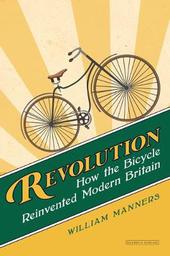
|
Penny-farthing
Hardback
Main Details
| Title |
Penny-farthing
|
| Authors and Contributors |
By (author) William Manners
|
| Physical Properties |
| Format:Hardback | | Pages:320 | | Dimensions(mm): Height 242,Width 160 |
|
| Category/Genre | British and Irish History
Transport
Cycling |
|---|
| ISBN/Barcode |
9780715652053
|
| Audience | | General | | Tertiary Education (US: College) | | Professional & Vocational | |
|---|
|
Publishing Details |
| Publisher |
Duckworth Overlook
|
| Imprint |
Gerald Duckworth & Co Ltd
|
| Publication Date |
31 May 2018 |
| Publication Country |
United Kingdom
|
Description
`The bicycle is of more importance to the history of mankind than all the victories and defeats of Napoleon, with the First and Second Punic Wars thrown in' New York Tribune (1895). From today's perspective, it is easy to see bicycles as fairly unremarkable and every day machines. But at the end of the nineteenth-century, there was no other piece of technology which attracted the same level of excitement, discussion or controversy. The story of the major societal shifts which followed the invention of the modern-day `safety' bicycle is one that is little-known, and with cycling's ever increasing popularity today there has never been a better time to tell it. Penny-farthing delves into the social history of cycling in 1890s Britain, while exploring international parallels that existed with countries including the US, France and Australia. Drawing on a range of sources, from cycling club journals to the writings of H.G. Wells, the book illuminates the major impact which the bicycle had on the day-to-day lives of men and women across the social spectrum with millions of men and women experiencing a cheap and personalised means of transport for the first time. This was especially the case for women as it was their great emancipator from crib, kitchen and convention. Cheaply available to the working class, this dramatically increased the number of potential marriage partners in the immediate vicinity leading biologist Steve Jones to rank the bicycle as the most important event in recent human evolution. From cycling as a source of fashion and socialising in sporting clubs, to travel around the British countryside, to its importance for widening the gene pool in remote rural areas and its significance in the women's liberation movement, the bicycle is a marvel of modern technology that transformed Britain and the world.
Author Biography
WILLIAM MANNERS is a keen cyclist who completed his graduate studies in History at University of York, specialising in late Victorian cycling. He grew up in the Somerset Levels regularly cycling to school and work. He has written articles about cycling for the Guardian and currently lives in Yorkshire where he blogs about the history of cycling: www.thevictoriancyclist.wordpress.com
|